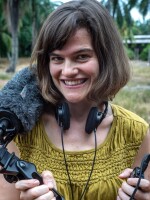One of the few times we hear about autopsies these days is when a celebrity dies. But post-mortem investigations do more than satisfy our curiosity about Whitney Houston or Notorious B.I.G.
Autopsies tell communities why people are dying.
Take for example West Nile Virus. When eight New Yorkers died of brain infections in 1999, most everyone assumed they had a common virus. But New York City's medical examiners insisted on autopsies. And, what do you know, they discovered the first U.S. cases of West Nile Virus.
In many places around the world, though, there aren't enough doctors available to perform routine autopsies. So it's tough to figure out what's hurting people and where money should be spent to improve health.
That's where something called a "verbal autopsy" might help, says Swedish epidemiologist Peter Byass.
Byass and his team at Umea University have been working on the technique for about a decade. Their latest version combines a simple interview with high-tech algorithms to deduce a cause of death.
Most people who live in rural areas of the world die in their homes and haven't seen a doctor, Byass says. So after a death, a community nurse or field worker goes to the family's home and asks some questions: What happened before the death? Was the person bitten by insects or snakes? Did she have a rash? Swollen feet?
The answers are fed into a computer model, which then churns out a list of what likely killed the person.
"It's not that different from what a physician does in his head when he's filling out a death certificate," Byass says. "It's the mathematical equivalent of that process."
For some diseases, like the measles and malnutrition, the algorithms are almost as good as a trained doctor at pinpointing the cause of death.
Byass and his team recently tested how good their technique is at picking out deaths from AIDS. Although the results aren't finalized yet, he says, it looks like the algorithm can accurately say if a person dies of AIDS about 90 percent of the time. "AIDS deaths are complicated," Byass says. "This isn't easy."
Unless you do a very careful post-mortem examination – chop them up and do pathology – it's really hard to tell cause of death.
And for other diseases with similar symptoms, like malaria and pneumonia, verbal autopsies have led to blunders. These mistakes have made some clinicians skeptical about the technique.
"Verbal autopsies give you a broad picture of what's happening in a community," Sir Brian Greenwood, of the London School of Hygiene and Tropical Medicine, tells Shots. "When you get specific details then people are probably overusing the tool."
Even a trained doctor's conclusions about death often don't match up with that of a real physical autopsy, Greenwood says. "Unless you do a very careful post-mortem examination — chop them up and do pathology — it's really hard to tell cause of death."
Still though, some information is better than none, Byass says. "In the U.S. and Europe, we take for granted why people die, but 50 percent of deaths around the world aren't recorded."
Knowing how someone dies is indispensible information for a community when it's deciding how to allocate precious healthcare resources, Byass says. "What diseases should you target for vaccines? Where should you be spending money? Without the data, you're guessing really."
So far the use of verbal autopsies has been limited to small research projects. But the World Health Organization is now pushing to make it more routine in places where deaths aren't recorded. Byass says his group is even getting ready to release a smartphone app that deduces cause of death.
Copyright 2021 NPR. To see more, visit https://www.npr.org.




